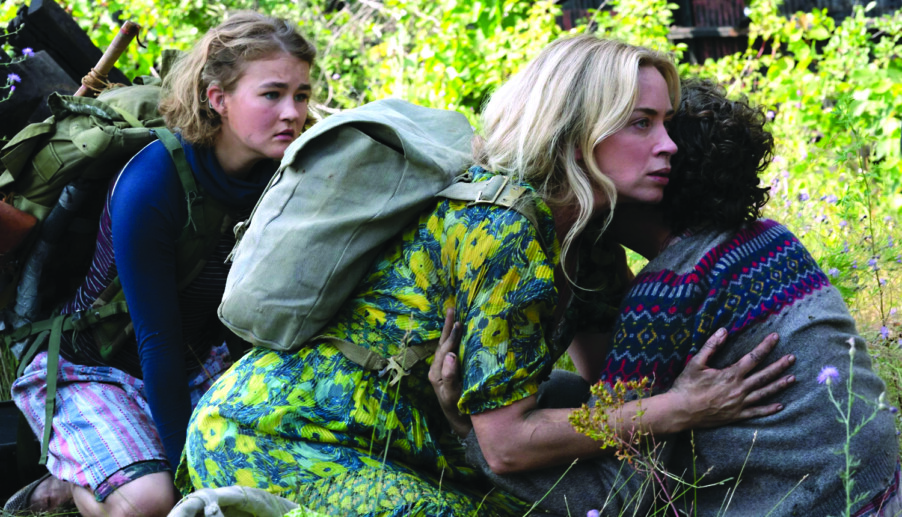Love Like That, by Emma Duffy-Comparone (Henry Holt and Co., 211 pages)
Novels can be bruising in their own way, but a good short story hits you like a closed-fist punch to the face. Steel yourself, then, before picking up Love Like That, Emma Duffy-Comparone’s utterly abusive collection, which you will not want to give anyone for Father’s Day.
The men in these nine stories are spectacularly broken or absent, either by virtue of divorce, separation or dying on the living room floor for their young daughter to find them. They make questionable choices, such as leaving their wife and kid for a student 25 years younger or using an old chainsaw to try to take out a stump. The men’s assorted miseries spill over to the women they love, protagonists described by the publisher as “misfits and misanthropes, bickering sisters, responsible daughters and unhappy wives.”
As the chainsaw-bearing man is prone to say, “Good times, huh?” Surprisingly, however, the answer is yes. With one significant and painful exception, for the most part, we get the sense that everything will eventually turn out OK for these memorable characters; that despite the everyman struggles and despair, there is something still valuable to be recovered in the ruins. Which is the best gift that art can give.
Duffy-Comparone teaches creative writing at Merrimack College in Boston and all these stories are set in New England, two on the Granite State coast. (She has said, drolly, that there is something about New England “that can make a person a bit sensitive, a bit brittle. You can feel — or at least I can — sort of jerked around by the seasons.”)
The first story, and one of the strongest, is “The Zen Thing,” which slyly begins, “Every year, the family unpacks itself for a weekend on a beach and pretends to have a good time.”
From there, Duffy-Comparone introduces the family and friends of Anita, gathered on a Rhode Island beach: her 13-year-old sister with Down syndrome; Anita’s much older live-in boyfriend whose daughter still thinks he’s away on a business trip; her grandmother and the new husband she met at a casino; and other assorted relatives, who are nothing like anyone you know, but exactly like everyone you know, in that sleight-of-hand trick performed by exceptional writers.
Not much happens in this story, beyond the usual fraught conversations between family members and a small accident involving a colostomy bag, but to borrow from Walt Whitman, it contains multitudes, much like a David Sedaris family story, and is an ultimately moving snapshot of the complexities of family life.
Similarly, “The Package Deal” is an extraordinary glimpse into the difficulties faced by a single, childless person who becomes involved with a person with a child.
“You tell yourself, ‘Kid, schmid.’ You tell your friends, who ask why you’re doing what you’re doing, ‘It’s not a big deal.’ You tell your mother, who grips your biceps and whispers with soupy eyes that entering a child’s life is a very, very big deal, ‘I know, Mom, Jesus!’
This story is vaguely autobiographical; Duffy-Comparone has written about dating a divorced man with an 8-year-old son, who, on the first time he saw his dad kiss her, left the room and started sobbing. She brings all that pain — for the man, woman and child — into this story, which lays bare how a child experiences an innocent party as a malign interloper, as well as the shock of encountering children, up close and in person, for the first time:
“… The hooflike footfalls, the vinegary socks, the alley smell of aim-anywhere urine, the plump slugs of toothpaste stuck to the side of the sink, the wet towels seeping into beds or stripping the varnish from dining room chairs, the shirts used as napkins, the shirts used as Kleenex, the whining, the moping, the deafening absence of please or thank you, not to mention the sensory violation that is mealtime.”
As for the punches, the first comes in “The Offering,” a disturbing story that does not reveal the reason for the title until its smart but terrible conclusion. It’s about a fourth-grader whose wretched home life is only occasionally lightened by a strange student teacher. As they say, no good deed goes unpunished.
Before you can recover from that, Duffy-Comparone cuts us off at the knees with “Exuma,” which is set in Portsmouth and begins benignly enough: “Gina wasn’t big on kids, but on an individual basis, like dogs, they could be all right.”
Gina has a checkered work history, so she takes a job as the nanny of a toddler who “shrieked all day like a bad oboe.” She loses that job, too, and goes on to take another as a projectionist at a century-old theater, where one night she has a panic attack related to a shocking thing that happened before. I will say only that I read this three days ago, and I’m not sure that I have fully recovered from this, or the tragic event in the titular “Love Like That.”
But that speaks to the power of Duffy-Comparone’s skills as a storyteller, that she can punch us and we keep coming back for the next story, bruises and all. A
BOOK NOTES
One of the most interesting pre-publication publicity blitzes in recent times is playing out on Twitter, where a 1980s pop star has shown up with a mouth like a machete.
Richard Marx, best known for hits like “Endless Summer Nights” and “Should Have Known Better,” has been slashing and burning his way through the MAGA crowd like a frontman for the Democratic Party. Sen. Rand Paul accused him of inspiring someone to send a suspicious package to Paul’s house, and he is insulting countless people on Twitter, including some who profess to be fans.
Why? Maybe he’s a really angry guy. But it’s more likely that he’s seeking attention for an upcoming book promoted in a pinned tweet with a pre-order link. The memoir is calledStories to Tell(Simon & Schuster, 320 pages) and isn’t coming out until July 6, but pre-publication sales make a difference in how a book performs overall. It’ll be interesting to see how this strategy plays out. As of this writing, Marx has amassed more than 309,000 followers on Twitter, but the abject nastiness of some of his tweets may backfire.
That said, Marx’s book may be more interesting than the new children’s book by Meghan Markle, the Duchess of Sussex (illustrated by Christian Sullivan). It’s calledThe Bench (Random House Books for Young Readers, 48 pages) and is promoted as a story “that captures the special relationship between father and son, as seen through a mother’s eyes.”
An excerpt: This is your bench, Where you’ll witness great joy. From here you will rest, See the growth of our boy.
Devoted Meghan and Harry fans may well love it, but the duchess isn’t likely to fill the shoes of the beloved Eric Carle, who died last month at his home in western Massachusetts.
Carle’s Brown Bear, Brown Bear, What Do You See? (Henry Holt and Co., 28 pages), published in 1996, remains the No. 1 best seller on Amazon among “children’s bears books,” which is a surprisingly competitive category, what with Corduroy, Blueberries for Sal and, of course, the Berenstain Bears
Book fairs
• NORTHERN NEW ENGLAND BOOK FAIR Featuring 45 rare, used, and collectible book and ephemera dealers from around New England and beyond. Everett Arena, 15 Loudon Road, Concord. Sat., June 6, and Sun., June 6. Visit nornebookfair.com.
Author events
• ANNETTE GORDON-REED Author presents On Juneteenth. Hosted by The Music Hall in Portsmouth. Thurs., June 3, 7 p.m. Virtual. Tickets cost $5. Visit themusichall.org or call 436-2400.
• CAROL DANA Penobscot Language Keeper and poet presents. Part of the Center for the Arts Lake Sunapee Region Literary Arts Series. Virtual, via Zoom. Tues., June 15, 5 p.m. Visit centerfortheartsnh.org/literary-arts-series.
• LIN-MANUEL MIRANDA, QUIARA ALEGRIA HUDES AND JEREMY MCCARTER Authors present the launch of their new book, In the Heights: Finding Home. Hosted by Gibson’s Bookstore in Concord. Virtual, via Zoom. Tues., June 15, 8 p.m. Registration and tickets required. Tickets cost $40 to $44. Visit gibsonsbookstore.com or call 224-0562.
• PAUL DOIRON Author presents Dead by Dawn. The Music Hall, 28 Chestnut St., Portsmouth. Thurs., July 1, 6 p.m. Tickets cost $60 to $180 per table. Visit themusichall.org or call 436-2400.
Call for submissions
• NH LITERARY AWARDS The New Hampshire Writers’ Project seeks submissions for its Biennial New Hampshire Literary Awards, which recognize published works written about New Hampshire and works written by New Hampshire natives or residents. Books must have been published between Jan. 1, 2019 and Dec. 31, 2020 and may be nominated in fiction, nonfiction, poetry, children’s picture books, middle grade/young adult books. All entries will be read and evaluated by a panel of judges assembled by the NHWP. Submission deadline is Mon., June 21, 5 p.m. Visit nhwritersproject.org/new-hampshire-literary-awards.
Book Clubs
• BOOKERY Online. Monthly. Third Thursday, 6 p.m. Bookstore based in Manchester. Visit bookerymht.com/online-book-club or call 836-6600.
• GIBSON’S BOOKSTORE Online, via Zoom. Monthly. First Monday, 5:30 p.m. Bookstore based in Concord. Visit gibsonsbookstore.com/gibsons-book-club-2020-2021 or call 224-0562.
• TO SHARE BREWING CO. 720 Union St., Manchester. Monthly. Second Thursday, 6 p.m. RSVP required. Visit tosharebrewing.com or call 836-6947.
• GOFFSTOWN PUBLIC LIBRARY 2 High St., Goffstown. Monthly. Third Wednesday, 1:30 p.m. Call 497-2102, email elizabethw@goffstownlibrary.com or visit goffstownlibrary.com
• NASHUA PUBLIC LIBRARY Online. Monthly. Second Friday, 3 p.m. Call 589-4611, email information@nashualibrary.org or visit nashualibrary.org.
Featured photo: Love Like That






